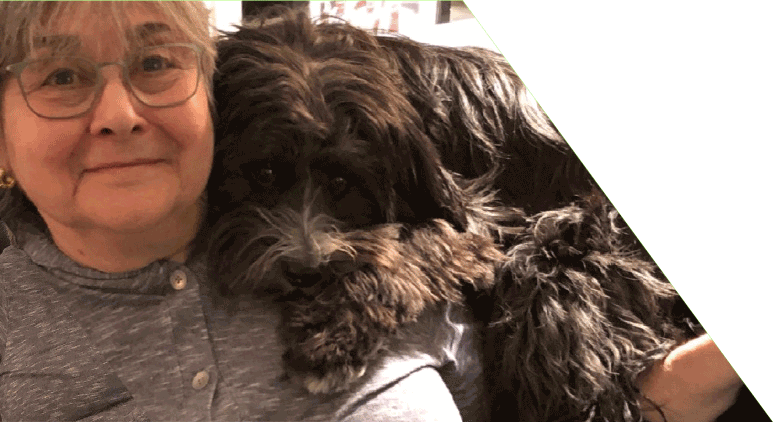HUMOUR AND THE HOLOCAUST
For This I Survived? Children of Survivors Beyond the Trauma.
- Bruria Lindenberg Cooperman
“Tell me Sam. Where did you and my dad meet?”
“We went to camp together!”
There has to be some laughter, even in hell.
They had lived through unspeakable horrors. They experienced unbelievable evil. And when it was finished, the real pain began. They were walking skeletons and their nightmares continued. Their siblings, their parents, their home — all gone. They were Holocaust Survivors. They were our parents and we, their children, lived with “the ghosts that screamed.”
In the 1960s, early studies portrayed men and women so consumed and paralyzed by their traumas they were unable to function. The literature also found that their children were greatly affected by the weight of their parents’ grief.
The interviews I conducted for a doctoral thesis in 2002 revealed a different picture. I heard stories of parents who were determined to give their children a ‘normal’ life. Whether we heard very little or heard every detail of the horrors – and I mean everything – we all felt it. But not everyone was defined by it.
Now, there is an urgency and a greater willingness to share, to overcome the silences society inflicted on them growing up. It was time to revisit who we were then and who we are now.
I sent out e-mails. One person told another person who told another person – like the Breck commercial. Again, I heard how the Holocaust had seeped into every aspect of our lives. The first born usually bore the brunt.
“All families are crazy … But ours were a special crazy.”
Indeed, we were a ‘special crazy’ but these children, now adults, have accepted who their parents were. In the book, Sarah asks, “How did we survive?” But survive we did, with courage and with humour.
Number one: never shame the family.
Number two: eat.
Maybe, eat first.
My mother, despite her experiences, looked at the world with hope. Many parents saw the funny and the absurd.
A friend’s mother, now in her 90s, had started having nightmares. My friend and her brother didn’t remember this when they were kids. When they asked her why, she answered, “Maybe I didn’t have the time to have nightmares.”
In many instances, the humour was passed down. It was our weapon of choice.
As the class of mostly children of Survivors walked into the chemistry lab, the supply teacher – who had a German accent – was waiting for them. One kid ran to a gas spigot and yelled out, “Everybody into the showers!”
In the last century, 6 million Jews lost their lives in unimaginable ways. And yet, Jews did what they always did. They fought back. Some joined resistance groups, some acted out individual acts of sabotage, and then there were those who fought back with humour. Humour is part of our Jewish DNA during times of tragedy, even during ‘better’ times. Jews never let their guard down.
In Woody Allen’s 1997 film, “Deconstructing Harry,” Harry is asked if he’s bothered about the Holocaust. He answers, “Not only do I know we lost six million, but the scary thing is that records are made to be broken.”
Jews are funny! Jewish humour is commentary, sarcastic, biting and funny! Humour is the glue that has historically helped keep us together. Viktor Frankl in Man’s Search for Meaning writes how he and a fellow Auschwitz prisoner told each other funny stories. It was their weapon against going insane.
In a recent documentary The Last Laugh, Rob Reiner states that the Holocaust is not funny, surviving is. One Survivor recounts being examined by Mengele, who told her that if she survived she should have her tonsils removed! She laughs uproariously at the memory. Until recently, any attempt at humour in connection to the Holocaust was taboo. It is the last frontier. Whether in books or films or on the stage, humour needs to be included in the narrative.
Every interview – then and now – told of resilience, of miracles and humour. Events have become hilarious in the retelling.
He says to my mother, “Kenisht gayn tse de khasene (I can’t go to the wedding).”
“What are you talking about?”
My mother is all farpitzt (dolled up), she had bought a gown for the occasion, mit de hur (with the hair), what she called the pompa-doodle and he’s standing there holding out his wrapped-up hand.
“Ikh ken nisht vazin (I can’t show you).”
“Farvust de kenst nisht vazin (Why can’t you show me?)?
“Ikh ken nisht (I can’t). Ich hob iber g’lost in de garage (I left it in the garage.).”
Humour was and is part of surviving. It helps us move beyond the trauma.
NB: The REIMANN FAMILY – The Richest family in Germany — found they had Nazi roots …. (They own Einstein bagels) …. Twitter had a field day with the story, primarily joking about how bad the bagels are. one user wrote. “Making shitty bagels may be the most passive-aggressive form of anti-Semitism yet,”
Another tweeted, “Is anyone really surprised though, their bagels are 100% a crime against the Jewish people.” (LOL, yes. Their bagels are really so bad.)
And although these jokes are dark, perhaps it’s the best way to cope with the news that the billionaires behind one of America’s largest bagel chains are Nazis. BAGEL!!!! One of the most Jewishly recognizable foods in the world.

Recent Comments